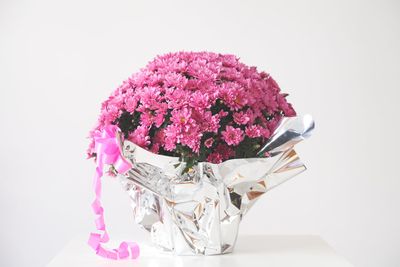Cardboard toilet paper rolls now serve their purpose in the bathroom then go on to a second life of cradling little seeds as they germinate. Even broken dishes, mirrors, etc. can find a new home in the garden when crafted into mosaic stepping stones, pots, birdbaths or gazing balls. You can even recycle tin foil in the garden! Read more about uses for aluminum foil in the garden.
Aluminum Foil Gardening
There are many benefits to using aluminum foil in the garden. It can deter pests, increase plant vigor, retain soil moisture, and help warm or cool the soil. However, before reusing aluminum foil, you should wash off any food remnants thoroughly and smooth and flatten out the pieces as much as possible. Even ripped or small pieces can serve a purpose, but dirty aluminum foil may attract unwanted pests.
Seed Gardening with Foil
Start collecting aluminum foil from your winter holiday feasts to reuse for seedlings in early spring. Large reusable pieces of tin foil can be wrapped around cardboard or used to line cardboard boxes to make light refracting boxes for seedlings. As sun or artificial light bounce off the aluminum foil, it increases light to all parts of the seedlings, creating full plants instead of leggy, spindly ones. The refracted light also helps to warm the soil, which will help seed germination for many types of plants. Cold frames can also be lined with aluminum foil. Smaller pieces of foil can be used to wrap cardboard toilet paper tubes that are repurposed into seed pots. The aluminum foil prevents the cardboard tubes from falling apart when they get wet.
How to Recycle Tin Foil in the Garden
The uses for aluminum foil in the garden go far beyond just seed care. Recycled tin foil in the garden has actually been a pest deterring hack for ages. Like me, you may have seen trees with aluminum foil wrapped near their base but never really questioned it. For many gardeners, this is a common practice to deter deer, rabbit, voles or other rodents that may chew on the tree in winter when fresh greens are scarce. Foil can also be wrapped around the base of evergreens or shrubs to prevent them from becoming the winter buffet. Fruit growers also use strips of aluminum foil in the garden to hang in fruit trees to scare away birds that may eat blossoms and fruit. Strips of foil can also be hung in vegetable gardens or berry patches to deter birds. When placed around the base of plants, aluminum foil refracts light up into the plant from the ground. This helps cool the soil around plants, allowing it to retain more moisture. It also increases photosynthesis and, therefore, plant vigor. In addition, it lights up the undersides of the plant where destructive pests like aphids, slugs, snails, etc. like to hide. If you do not like the look of patches of aluminum foil in the garden, shredded aluminum foil can be mixed in with mulch and placed around the base of plants. While many insects dislike the reflective surface of aluminum foil, butterflies and moths will appreciate it. The refracted light of foil can help butterflies dry out their wings on dewy mornings. Foil can also be placed on the inside or outside of plant containers to catch water or keep soil in.
